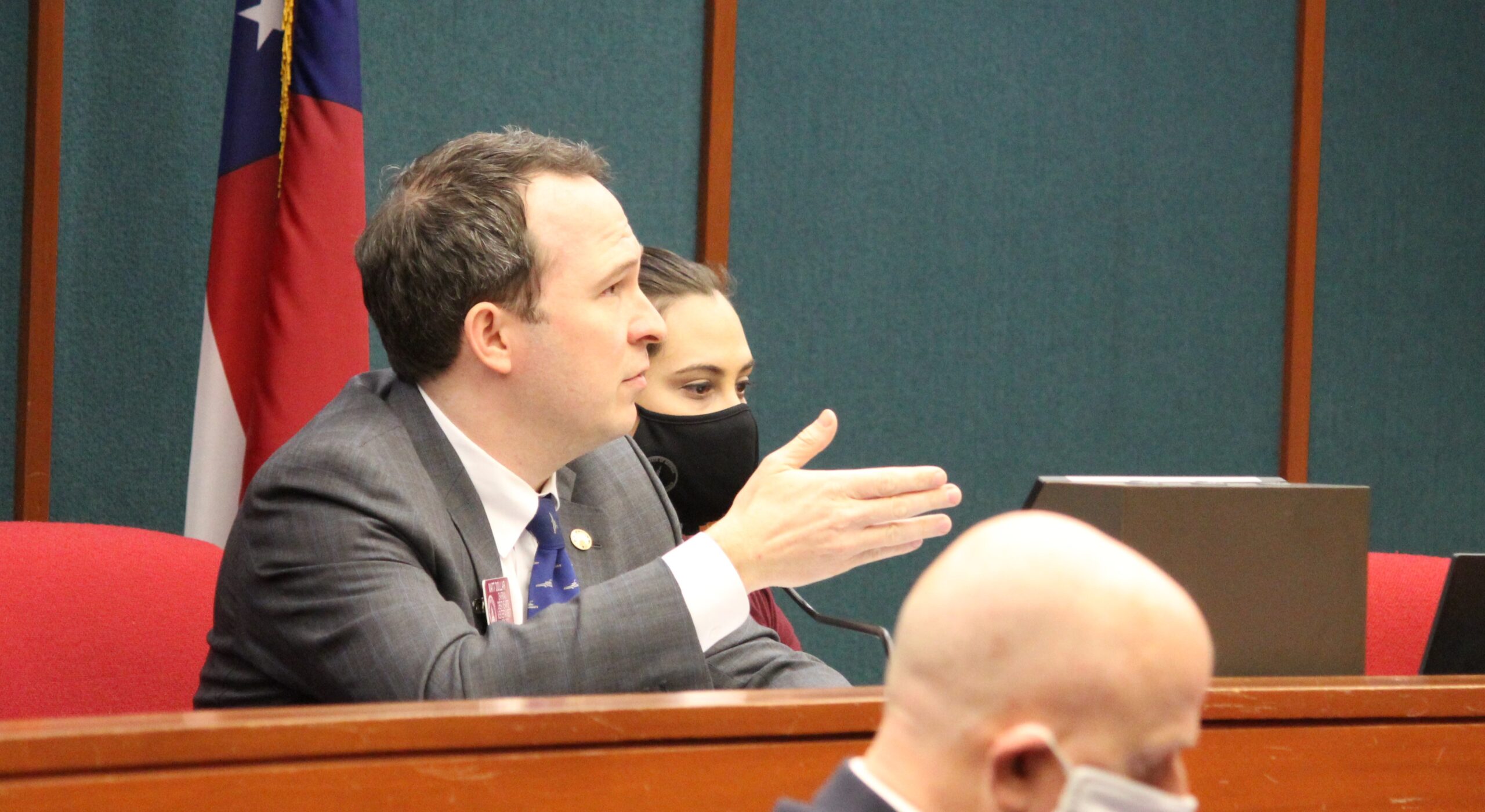Steve Mensch, who oversees operations at Tyler Perry Studios in Atlanta, says just a few months into the pandemic last year, the studio started quarantining hundreds of cast and crew members in on-site housing.
He says that created a blueprint of how to get back to work. Now, he says, they’re booked through the end of 2021.
“For the very first time, I have no space on the lot,” Mensch told the House Creative Arts and Entertainment committee on Wednesday. “Usually we’re able to squeeze a piece of work in here or there, but we are absolutely at capacity.”
With just 10 legislative days left in the session, lawmakers on the new committee aren’t signaling any changes to Georgia’s generous film tax credits. One bill that would have repealed the credits, sponsored by Republican Rep. David Clark, has not received a committee hearing.
“I think the level of confidence and comfort in the work, the stability of the incentive here has been incredibly helpful,” said Mensch.
But it’s not just the film industry – or metro Atlanta — that is seeing brighter days.
“Things have gotten so good since January. I would not have believed this four or five months ago, how busy we are,” said Beth Nelson with the Savannah Regional Film Commission. She says restaurants and hotels that have seen tourism dollars dry up are coming back to life, too.
“By getting these rooms rented out to production people has really filled a gap that they were experiencing,” said Nelson.
Michael Akins, who represents Motion Picture Studio Mechanics Local 479, says his union generated $75 million in wages in the first three months of 2020 before the pandemic hit, as compared to $64 million in January to March of 2019.
After the lockdown shutdown the industry for several months, Akins says by the fourth quarter of 2020, wages were back to within 10% of the previous year.
Among the criticisms of the film tax credits in Georgia is that not enough of the state’s residents are working, spending and paying income taxes in the state. But Akins says more than 80% of his union members live in Georgia.
One factor helping to create a workforce based in the state has been the Georgia Film Academy. Its executive director, Jeffrey Stepakoff, says they want to create a “permanent and sustainable entertainment business” in Georgia.
He says enrollment in the academy has jumped from just under 200 in 2016 when it was launched to more than 800 now. Stepakoff says it’s key that the state didn’t create a brick-and-mortar academy, but rather a network of classes and internships throughout the state.
“A partnership with the labor unions, with the University System of Georgia, with the Technical College System of Georgia, with the global production business, we all have come together to build this,” said Stepakoff.
Committee Chairman Rep. Matt Dollar says the Georgia Film Academy has helped with the industry’s rapid growth in Georgia.
“It’s been very successful in getting Georgians to work and getting them to work quickly and paid well,” said Dollar.










